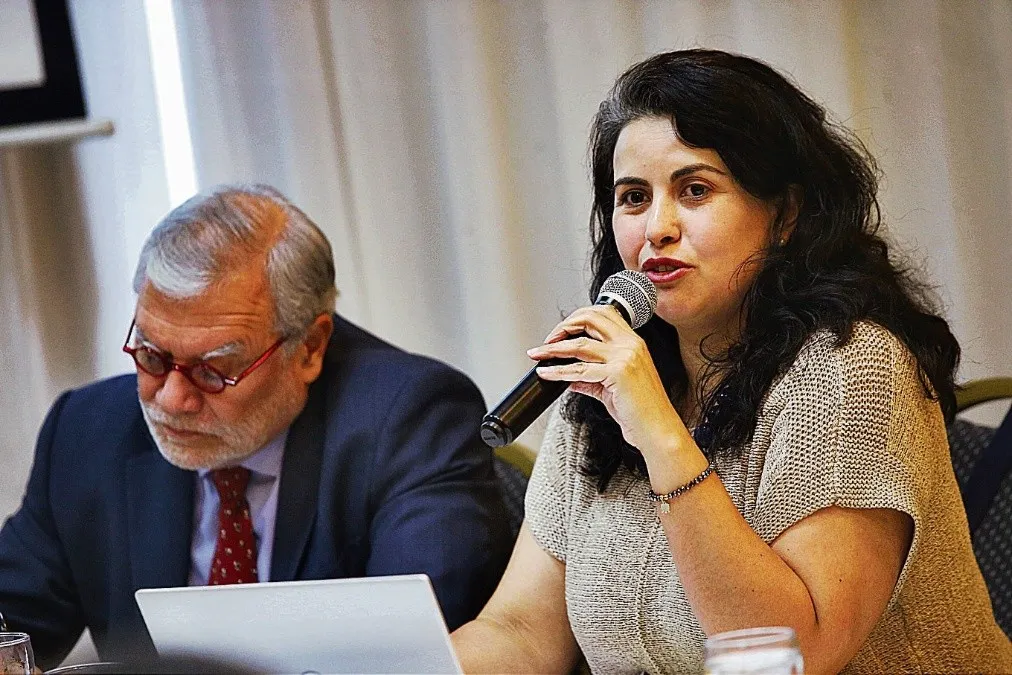The Due Process of Law Foundation (DPLF, by its English acronym) published its most recent report on the barriers that El Salvador faces in the fight against corruption, and it detailed that corruption is structural, cross-cutting, and widespread.
The document highlights as setbacks in El Salvador the dismissal of the magistrates of the Constitutional Chamber of the Supreme Court of Justice (CSJ) and the head of the Attorney General’s Office of the Republic (FGR), which are institutions that “play a key role in the fight against corruption.” It also mentions eliminating the International Commission Against Impunity in El Salvador (CICIES), which was already investigating more than 10 cases.
About the judicial system, it points out that eliminating the guarantees of judges and prosecutors through the reforms to the Judicial Organic Law (LOJ) made its operators vulnerable to “undue pressures,” which generate conditions for corruption in the justice chain.
Úrsula Indacochea, program director of the DPLF, referred to the changes that occurred in the FGR and said that although when there are changes of heads, it also happens in key positions, in the current administration the changes that occurred “affected directorships and fiscal units that were making satisfactory progress in criminal investigations for acts of corruption by officials, at least the people for whom these changes were made deserve to be made transparent.”
Another strong point was the declaration of reservation of the reports produced by the Probity Section of the CSJ, as it is a “serious obstacle” to auditing undue enrichment and enforcing the criminal responsibilities of public officials. On the legislation in the fight against corruption, the DPLF mentioned a significant gap in substantive criminal law “concerning the criminal liability of legal entities involved in corruption cases.”
Recommendations
Among the recommendations are that the Supreme Court reinstate the removed judges and approve a Probity Law. To the Prosecutor’s Office, create a special unit against corruption and account for its investigations. To the Legislative Assembly to refrain from regressive reforms in the fight against corruption.
La corrupción en El Salvador sigue siendo estructural”: DPLF
La Fundación para el Debido Proceso (DPLF, por sus siglas en inglés), publicó su más reciente informe sobre las barreras que enfrenta El Salvador en la lucha contra la corrupción y en él detalló que la corrupción es estructural, transversal y generalizada.
El documento plasma como retrocesos en El Salvador la destitución de los magistrados de la Sala de lo Constitucional de la Corte Suprema de Justicia (CSJ) y del titular de la Fiscalía General de la República (FGR), que son instituciones que “cumplen un rol clave en la lucha contra la corrupción”. También menciona la eliminación de la Comisión Internacional Contra la Impunidad en El Salvador (CICIES), que ya investigaba más de 10 casos.
Sobre el sistema judicial, señala que eliminar las garantías de los jueces, juezas y fiscales por las reformas a la Ley Orgánica Judicial (LOJ) hizo vulnerables a sus operadores por las “presiones indebidas”, que generan condiciones para la corrupción en la cadena de justicia.
Úrsula Indacochea, directora de programa de la DPLF, se refirió a los cambios ocurridos en la FGR y dijo que si bien cuando hay cambios de titulares también ocurre en puestos claves, en la actual administración los cambios ocurridos “afectaron direcciones y unidades fiscales que estaban avanzando satisfactoriamente en investigaciones penales por actos de corrupción de funcionarios, por lo menos merecen ser transparentados las personas por las cuáles se hicieron esos cambios”.
Otro de los fuertes señalamientos fue la declaratoria de reserva de los informes producidos por la Sección de Probidad de la CSJ, ya que es un “grave obstáculo” para fiscalizar el enriquecimiento indebido y para hacer efectivas las responsabilidades penales de los funcionarios públicos. Sobre la legislación en la lucha contra la corrupción, la DPLF mencionó que hay un vacío importante en la legislación penal sustantiva, “en relación con la responsabilidad penal de las personas jurídicas involucradas en casos de corrupción”.
Recomendaciones
Entre las recomendaciones están que la Corte Suprema restituya a los jueces y juezas que fueron removidos y que aprueben una Ley de Probidad. A la Fiscalía, crear una unidad especial contra la corrupción y rendir cuentas de sus investigaciones. A la Asamblea Legislativa, que se abstenga de reformas regresivas en materia de combate a la corrupción.

